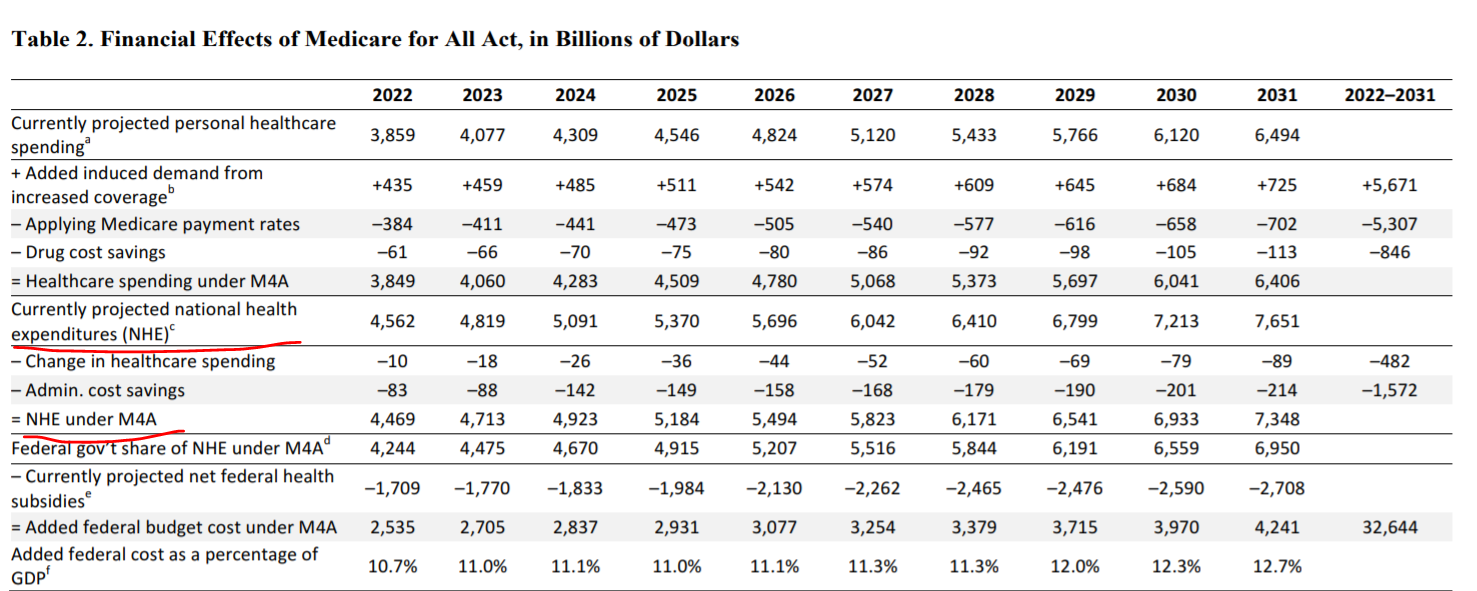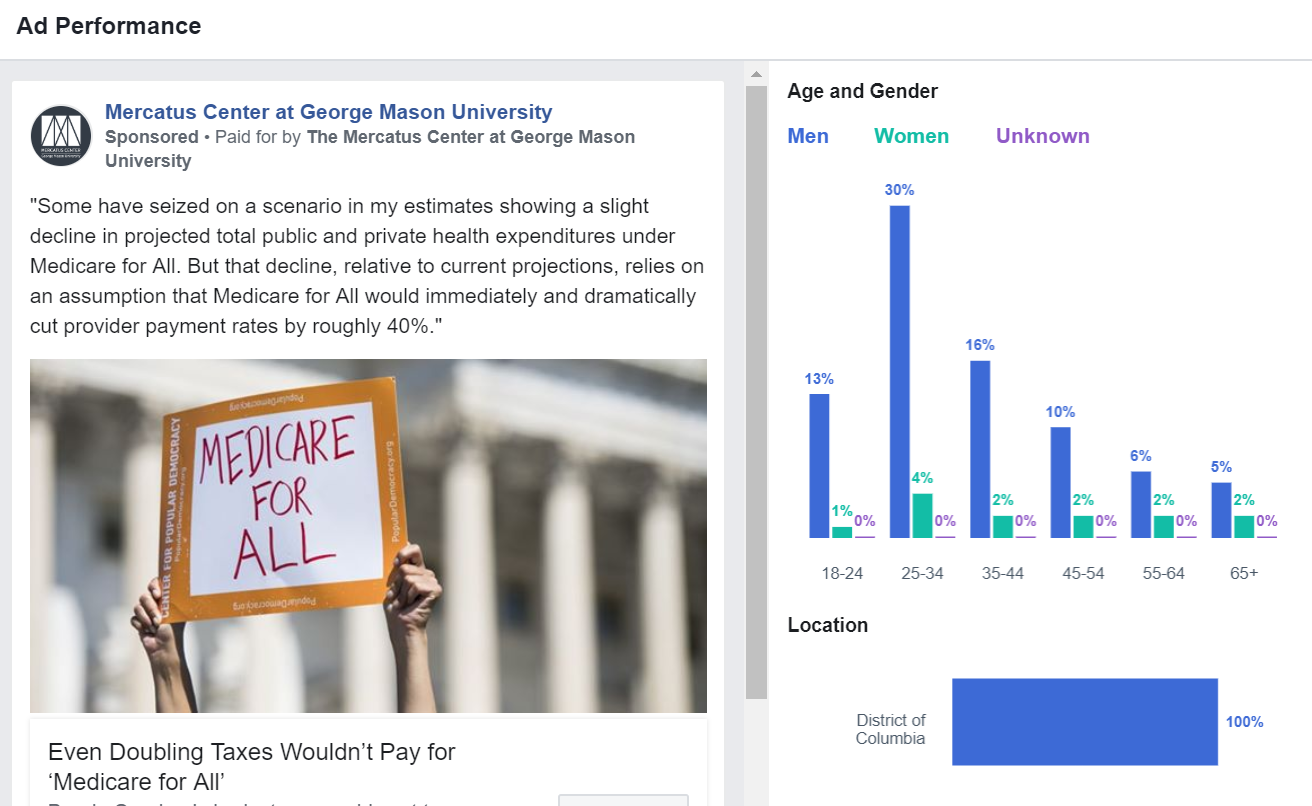Fact checkers have a Medicare-for-all problem
Tripping over themselves to attack Medicare-for-all, Fact Knowers make howling errors


A free daily email with the biggest news stories of the day – and the best features from TheWeek.com
You are now subscribed
Your newsletter sign-up was successful
Medicare-for-all: Would it save American society money? That question has been tying fact checkers in knots over the past several weeks.
One recent working paper put out by the libertarian Mercatus Center unwittingly answered in the affirmative, to the tune of over $2 trillion over a 10-year period. But so far The Washington Post, The Associated Press, FactCheck.org, PolitiFact, and CNN have absolutely beclowned themselves trying to dispute the study's clear finding.
Here's the background. Bernie Sanders has a Medicare-for-all bill that he put out last year. It would fold all Americans into an upgraded Medicare system over four years, which would now cover dental, vision, and hearing with no cost-sharing. Prescription drugs would be covered with small cost-sharing, capped at $250 per year. It would be paid for with new taxes, but offset by zeroing out insurance premiums and almost all cost-sharing.
The Week
Escape your echo chamber. Get the facts behind the news, plus analysis from multiple perspectives.

Sign up for The Week's Free Newsletters
From our morning news briefing to a weekly Good News Newsletter, get the best of The Week delivered directly to your inbox.
From our morning news briefing to a weekly Good News Newsletter, get the best of The Week delivered directly to your inbox.
When it comes to overall spending, this would have three effects pulling in different directions. First, there would be higher utilization and thus more spending, as people who were prevented from seeking treatment due to cost could now go to the doctor. But second, medical providers would be paid somewhat less, because Medicare reimbursement rates are 40 percent lower than those of private insurance — though they are higher than Medicaid (the largest insurer in the country) and much higher than that of uninsured people who simply can't pay for the emergency treatment that hospitals are legally required to provide.
Third, because they would now only have to deal with one billing system, providers would be able to dramatically streamline their administrative apparatus. A Health Affairs study of eight rich countries, for instance, found U.S. hospitals spent by far the highest faction of their budgets on administration, at 25.3 percent — while those of the Netherlands spent 19.8 percent, the U.K. spent 15.5 percent, and Canada spent 12.4 percent.
Therefore, figuring out what Sanders' Medicare-for-all bill might cost overall depends on two estimates and one fact: 1. how much utilization will increase, 2. how much can be saved on administration, and 3. what the provider reimbursement rates are. The first two are necessarily uncertain, but the third is simply whatever is stipulated in the Medicare-for-all legislation.
Charles Blahous of the Mercatus Center did an elementary study of Sanders' Medicare bill whose main purpose was pretty obviously to find a really big number for new public spending, and then get that headline figure blasted out in the media.
A free daily email with the biggest news stories of the day – and the best features from TheWeek.com
But buried in the tables there was also an estimate of total national health expenditures (that is, all public and private spending) of the status quo compared to the Sanders plan. Here is the table — look at "Currently projected national health expenditures (NHE)" versus "NHE under M4A," which I have underlined:

Mysteriously, Blahous chose not to display the summed total figures for those rows, but if you do the arithmetic, you find he estimates status quo NHE at $59.7 trillion over 10 years, while he estimates NHE under the Sanders plan at $57.6 trillion over the same time frame — for a savings of $2.1 trillion.
Perhaps not satisfied with this result, Blahous then put forward an alternative plan of his own in which provider payments would not be cut as much, with total NHE spending somewhat higher. Importantly, this plan has nothing at all to do with the Sanders bill. It's just something he made up.
He also heavily emphasized that Medicare reimbursement rates are 40 percent lower than private insurance, but did not outline how much the Sanders plan specifically would cut. However, if you go into his tables and reverse-engineer the figures, it must be something like 11 percent.
That brings me to the epic fact checker faceplant. Sanders trumpeted the Mercatus finding, because it was hilarious and a good demonstration of how America could be getting universal Medicare while spending less overall — even given no doubt slanted libertarian assumptions. Glenn Kessler of The Washington Post was first on the attack, giving Sanders 3 out for 4 "Pinocchios" for a supposedly "cherry-picked" $2 trillion figure. He asserted that Blahous' alternative Medicare plan was more realistic, as did Robert Farley of FactCheck.org and AP's Ricardo Alonso-Zalvidar. PolitiFact rated Sanders' claim as "half true" because he didn't mention the Blahous plan. CNN's Jake Tapper put out a video chiding him and Alexandria Ocasio-Cortez for relying on the $2 trillion figure. "A reminder to all you politicians out there, you're perfectly entitled to your own opinions, but not your own facts," tut-tutted Tapper.
This point is wildly misleading, and indeed has nothing to do with facts as such at all. The fact checker brigade is saying that provider payments will be hard to cut, and therefore Sanders might end up passing something different than his Medicare bill. Therefore he is a liar. But Blahous's study absolutely, positively does say that the Sanders plan as written will save the American people $2 trillion. Sanders didn't mention the more expensive Mercatus plan because it is not his plan. Vague speculation about future political negotiations has nothing whatsoever to do with the facts of the Sanders proposal, nor the empirical contents of the Mercatus study.
But that's not even the worst part.
As part of its PR rollout of the paper, Mercatus bought buying ads for Facebook in D.C. promoting a Wall Street Journal op-ed in which Blahous baldly misrepresents his own paper, writing that the Sanders bill would "immediately and dramatically cut provider payment rates by roughly 40 percent."

(Screenshot via Facebook political ad tracker)
As noted above, this is absolutely false, because only about half of people are on private insurance. Medicare payments would stay the same, while Medicaid and uninsured payments would go up. But Kessler, after talking to Blahous, initially swallowed this characterization, writing in his first article that providers "would face an immediate cut of 40 percent in their payments."
He was forced to correct that article (for that and several other factual errors) — though a video which is still up on The Washington Post at the time of writing contains the same false claim, asserting the plan "generously assumes providers would be paid roughly 40 percent less than they are now." Unbelievably, even after correcting his first article, Kessler wrote another article making the false claim again, writing "the Sanders plan would slash payments to providers by 40 percent." That one is still uncorrected at the time of writing.
This 40 percent talking point is not just wrong, it is preposterous. One way of seeing why is by looking at how much Blahous estimates Sanders will save with provider cuts in the table above. On the right-hand column, we find the sum total of "Applying Medicare payment rates" from 2022-31 is $5.3 trillion in spending cuts. If that is a 40 percent cut, then that implies that the total volume of provider payments in the Sanders plan must be only about $8.0 trillion ((5.3/0.4)*0.6 = 7.96) — over a period in which national health expenditures are $57.6 trillion. Less than a seventh of medical spending going to providers in a Medicare system doesn't pass the laugh test — in 2015 existing Medicare provider payments accounted for at least 77 percent of spending, with another 14 percent going to prescription drugs — and again, the true cut to providers in the paper itself must be about 11 percent.
Finally, this study should be seen as the absolute worst-case scenario for universal Medicare, not a fair estimate of what it might cost. The fact that even the Mercatus Center couldn't make it look that bad is a very good sign. Fact checkers need to get a grip.
Ryan Cooper is a national correspondent at TheWeek.com. His work has appeared in the Washington Monthly, The New Republic, and the Washington Post.
